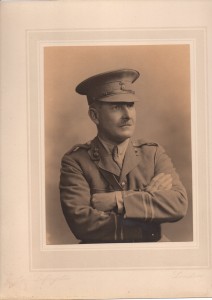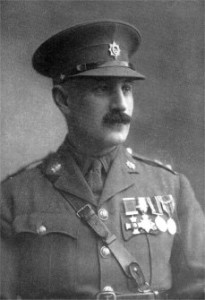4th November 1917 Sunday
Commanding Officer Arrested!
All material produced or reproduced here and throughout this work is the sole copyright of the author and the family of Doctor D.C.M. Page MC
“We left the trenches for Erquingham on Sunday night, 4th November. Our new Colonel – Major Leman – arrived that night. It is understood that Col. Campbell has been sent home under close arrest for speaking his mind about certain high officers being under the influence of liquor during the Langemarcke show. We were all sorry to lose him. He was a splendid commanding officer and took an interest in everybody under his command. He was specially good to me – a brother Scot.”
Most of the main combatants in the war had taken measures to restrict the consumption of alcohol. Wages had rocketed with the glut of overtime working and a lot of that extra money was spent in the pubs. A shipyard owner complained that the bonus of double time for Sunday working resulted in many no shows on a Monday morning and stricter control was needed.
At home David Lloyd George said “We are fighting Germany Austria and drink”. In 1915, in an effort to boost production for the British war effort, he had introduced the Central Control Board. Across the country strict controls were introduced. Breweries were under the control of the Government, the strength of beer reduced, taxes increased. Measures were also taken to encourage pub landlords to be more responsible including introducing facilities for women. By the end of the war in 1918 consumption of beer had been halved and continued to decline. By the 1930’s Britain had become a very sober place.
It was now an offence to buy a drink for somebody other than the person paying for it. Newspapers back on the home front reported on cases of contravention of the new laws, such as a Southampton man Robert Smith who was fined for buying his wife a glass of wine. His wife was also found guilty of drinking it and fined a pound, as well as Dorothy Brown the barmaid who was fined five pounds for serving it, in contravention of the new regulations of the Central Control Board. Mr Smith had told the court that his wife had given him sixpence to pay for her drink, but it didn’t get him off.
The situation on the Western Front was very different. A daily ration of rum was the order of the day. Who wouldn’t have needed it to try and stem the inevitable fear generated under fire in the trenches and preparing to go over the top? Officers had access to more than a daily tot of rum and some may have sought solace in drink. They would have suffered as equally as the men from fear, shell shock and the thoughts of committing so many to their death and injury, as a consequence of their orders.
Lieutenant Colonel Robert Ormus Campbell had taken command of the 13th RWF (Service Battalion) on the 13th July 1916, succeeding Lt.Col. Oswald Swift Flower who had been killed the previous day fighting on the Somme. Colonel Campbell was a popular leader who only a few days beforehand described in a letter a successful raid against the German trenches. Douglas was very disappointed to hear that such a popular officer had been sacked and escorted home under close arrest for apparently speaking out against the drunkenness of fellow officers.
He was relieved by Lt. Col. John Frederick Leman, who would remain in the post for the rest of the war.
Find out about our connection with Dr Page and an introduction to his diary here


Nice story. Robert Ormus Campbell was my wife’s great great uncle (brother of her great grandmother Margaret Campbell).
A bit belated but thank you Richard for taking the time to comment. It’s always interesting to hear from people who have a connection in one way or another to those in the diary.